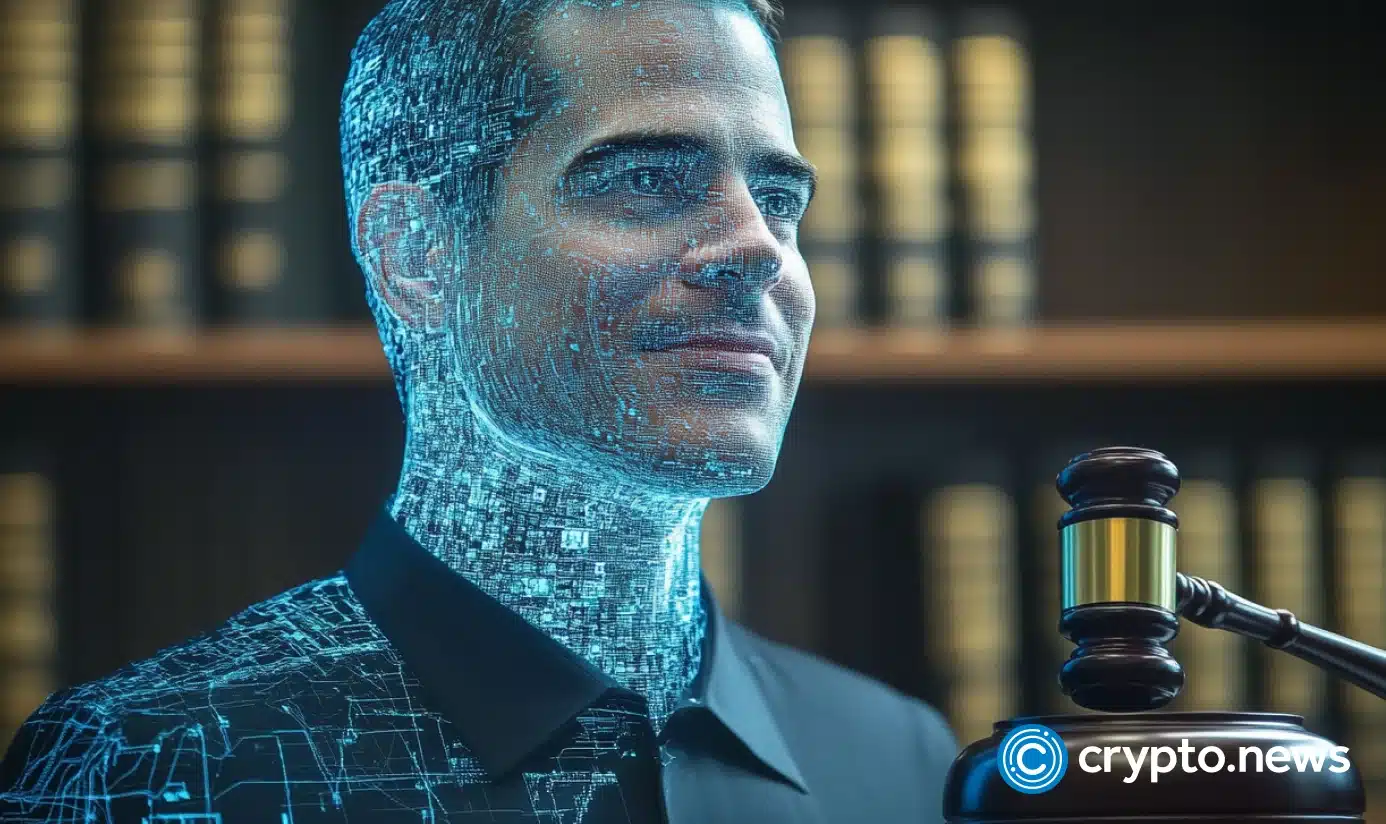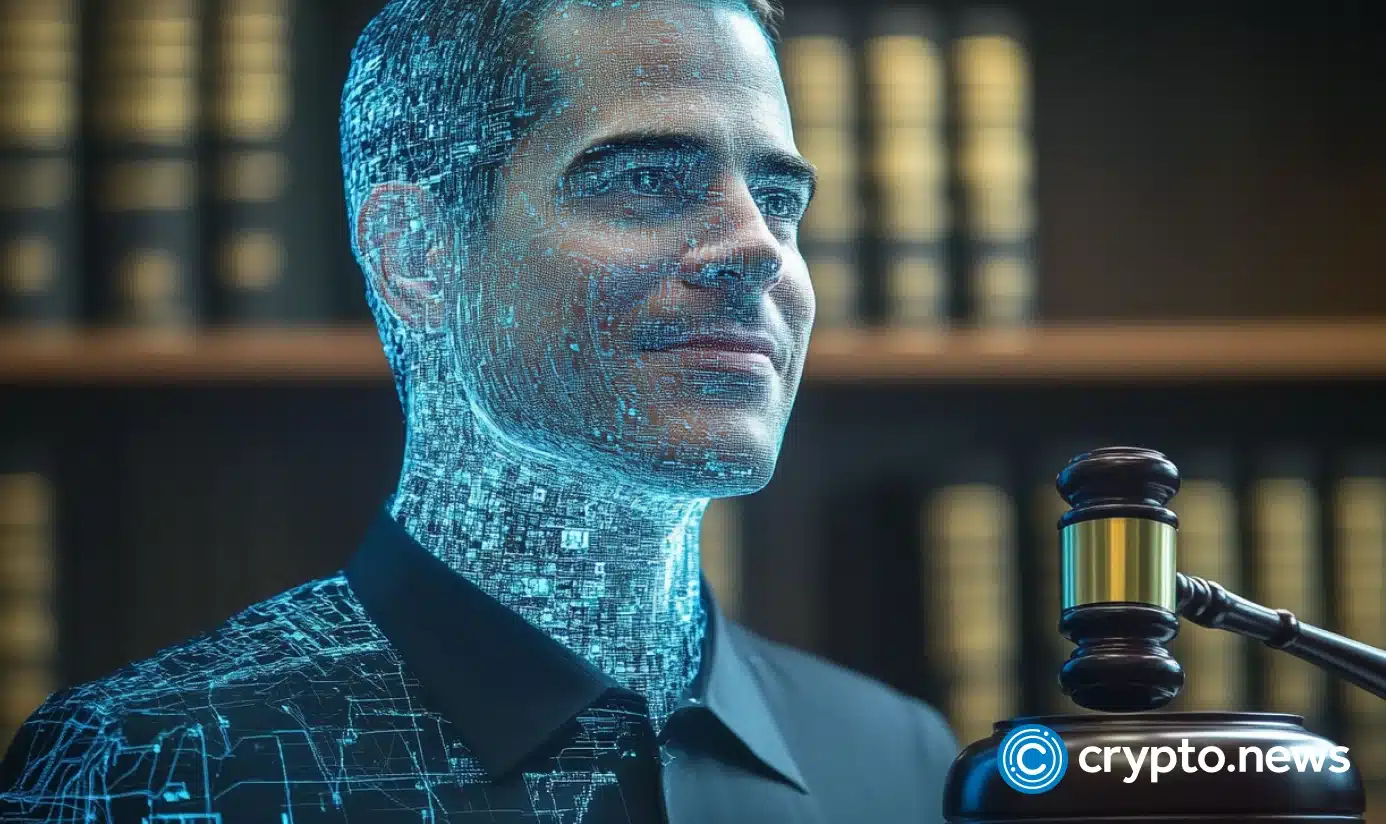crime
Tether helps Canadian police recover stolen crypto
Published
5 months agoon
By
admin

Tether recently assisted the Ontario Provincial Police in recovering $10,000 CAD worth of stolen cryptocurrency.
This recovery was achieved through Tether’s collaboration with the OPP’s Cyber Investigations Team, showcasing the company’s commitment to supporting law enforcement in combating cybercrime.
Tether responded to the OPP’s request by freezing the Tether (USDT) involved in the theft, which allowed the digital assets to be returned to their rightful owner.
Detective Staff Sergeant Addison Hunter of the OPP acknowledged Tether’s voluntary cooperation as essential in recovering the stolen funds, according to Tether’s press release.
Tether has established itself as a partner to law enforcement in tackling cybercrime, claiming it has aided over 195 law enforcement agencies across 48 countries.
Tether also announced on November 8 that it had completed its first funding transaction in a Middle East crude oil investment, expanding the company’s ventures beyond just crypto.
Tether in the hot seat?
Recently, on the United States legal front, Tether denied reports that the company was under investigation for anti-money-laundering and sanctions law violations.
Manhattan prosecutors were reportedly investigating whether Tether’s cryptocurrency had been involved in illegal activities. The U.S. Treasury Department was also said to be considering sanctions on Tether, which could potentially limit American business dealings with the company.
Ceo Paolo Ardoino rejected these claims on X, asserting there was no indication of an investigation and calling the reports “old noise.”
Source link
You may like


Crypto Trader Says Solana Competitor Starting To Show Bullish Momentum, Updates Outlook on Bitcoin and Ethereum


weakness signals move toward lower support


Now On Sale For $70,000: The World’s First Factory Ready Open-Source Humanoid Robot


What Next for ETH as Traders Swap $86M into Solana DeFi protocols ?


Why Did Bitcoin Price (BTC) Fall on Wednesday Afternoon


Solana price is up 36% from its crypto market crash lows — Is $180 SOL the next stop?
Bitcoin
Trump pardons BitMEX, is ‘Bitcoin Jesus’ Roger Ver next?
Published
3 weeks agoon
March 30, 2025By
admin

Vitalik Buterin, Ross Ulbricht, and Tucker Carlson are among those urging President Donald Trump to pardon Roger Ver, aka Bitcoin Jesus.
Known as Bitcoin Jesus for his early advocacy of Bitcoin, Ver faces up to 109 years in prison on tax charges, including allegations of evading $48 million in taxes. Despite renouncing his U.S. citizenship in 2014 to avoid prosecution, Ver’s legal troubles resurfaced when he was arrested in Spain in 2024. But following the president’s earlier pardons of figures like Ulbricht and BitMEX co-founders, observers wonder whether Ver’s would catch a break. Is a pardon on the way, or will Ver’s legal troubles continue?
Read on for a closer look.
Crypto cronies
After Trump embraced cryptocurrency, many crypto leaders rallied to support him by donating funds to his inauguration and hobnobbing at galas.
Trump also , which industry brass celebrated.
In return, Trump signed an order to stockpile tokens and swiftly acted in favor of the industry. Under Trump-appointed SEC chair Mark Uyeda, investigations into several cryptocurrency companies, including Immutable, Crypto.com, Ripple, and Coinbase, were dismissed.
In a notable move on Thursday, March 27, Trump pardoned BitMEX co-founders Arthur Hayes, Benjamin Delo, and Samuel Reed, who had pleaded guilty to federal charges related to money laundering and regulatory violations. The trio was convicted for failing to implement anti-money laundering measures at BitMEX, which prosecutors had labeled a “money laundering platform.” Reed had also violated the Bank Secrecy Act and paid a $10 million fine. But under Trump, it seems all is forgiven.
This has sparked speculation on whether Ver, a prominent figure in the crypto world, could also receive the same courtesy.
Ver, a Silicon Valley native with a libertarian streak, was deeply involved in the early days of cryptocurrency, investing in companies like Kraken, Ripple, and Blockchain.com. In 2017, Ver hyped Bitcoin Cash (BCH) as more suitable for everyday payments.
Roger Ver was there for me when I was down and needed help. Now Roger needs our support.
No one should spend the rest of their life in prison over taxes. Let him pay the tax (if any) and be done with it. #FreeRoger pic.twitter.com/flP573hm0N
— Ross Ulbricht (@RealRossU) February 20, 2025
Ver’s past
In 2000, by the age of 20, Ver began to participate in libertarian party debates.
During these debates, he made critical statements about the agents of the Bureau of Alcohol, Tobacco, and Firearms, calling them “murderers” and referencing their involvement in the scandalous Waco Siege in which dozens of children were killed in a standoff between FBI and ATF agents and Branch Davidian cult followers. Ver didn’t know that ATF agents were present during these debates.
In the 2000s, Ver became involved in e-commerce. On top of tech enterprises, Ver was selling firecrackers on eBay. After selling unlicensed firecrackers in 2001, he was charged and spent 10 months in prison. The fact that he was locked in jail instead of being fined or notified about the necessity of obtaining a license led Ver to think that the case was politically motivated and that his criticism of ATF was the real reason behind his prosecution. Without fear of further persecution, Ver left the U.S. after his post-prison probation ended.
By 2011, Ver learned about Bitcoin and became one of its first investors. He also advocated for Bitcoin long before it went mainstream, with multi-million investments and national leaders talking about its importance for the future of their countries.
The key points of Ver’s advocacy for Bitcoin were the financial freedom of individuals and the stopping of government and banks from interfering in people’s lives.
The legal fight
Since February 2014, Ver has been a citizen of Saint Kitts and Nevis. He claims that he had to renounce his U.S. citizenship after long-lasting targeting from the U.S. government.
In April 2024, he was indicted and arrested in Spain on charges of U.S. tax evasion and mail fraud. Ver is accused of dodging $48 million in taxes after earning up to half a billion dollars through cryptocurrencies.
According to prosecutors, Ver failed to pay his “exit tax” on 131,000 BTC owned by his two companies when he left the U.S. and provided false info to the law firms filing Ver’s tax returns. Allegedly, he sold his bitcoins in 2017 without notifying the financial attorneys.
Ver clarifies that three charges of mail fraud (combined, punishable by 19 years behind bars) are based on the three letters with his tax returns he sent to the Internal Revenue Service (IRS).
Ver denies he committed crimes such as tax evasion and mail fraud. He insists he was doing his best to comply with the nascent Bitcoin taxation rules, and that his prosecution was politically motivated.
In December, he began his legal fight against the prosecution, denying all the charges. He filed a motion to dismiss charges, but the government rejected it in January.
Ver’s legal team challenged an exit tax as “an unconstitutional burden on the fundamental right to expatriate.” For people like Ver, who have substantial amounts of low-liquidity assets, the exit tax may be prohibitive. The government suggests Ver is a fugitive. He disagrees with this status as he doesn’t hide and didn’t commit crimes for which he is judged while living in the U.S.
On March 1, Ethereum’s Buterin published an X post arguing that the exit tax doesn’t exist in most other countries and called it the “tax-by-citizenship” and “extreme.”
In addition, Buterin mentioned that the IRS obtained some of the information by intimidating Ver’s lawyers. The Ethereum founder added:
“Genuine good faith mistakes should be treated by giving the actor the opportunity to pay back taxes if needed with interest and penalties, not with prosecution.”
Going to prison for the rest of your life over non-violent tax offenses is absurd. The case against Roger seems very politically motivated; like with @RealRossU, there have been plenty of people and corporations who have been accused of far worse and yet faced sentences far… https://t.co/7G3zDkn2F2
— vitalik.eth (@VitalikButerin) March 1, 2025
Will Bitcoin Jesus be pardoned?
Trump promised to pardon Ross Ulbricht if get elected. Ulbricht, the man behind the Silk Road marketplace charged for money laundering and drug trafficking, is an important figure in the history of Bitcoin as his marketplace drove Bitcoin’s adoption. After the inauguration, Trump indeed pardoned Ulbricht to much acclaim.
Soon, various crypto advocates began to urge Trump to pardon Roger Ver. On Jan. 21, 2025, following the pardon of Ross Ulbricht, an X influencer using the moniker Rothmus published a short post calling for the pardon of Ver to which Elon Musk replied: “will inquire.” This reply gave the community hope for the pardon of Bitcoin Jesus.
https://twitter.com/Rothmus/status/1881536312710402268
On March 17, Marla Maples, Trump’s ex-wife, took to X to share a touching video where people who met Ver tell their stories of his generosity.
It is not clear, though, if the POTUS paid attention to this post.
The hope for a pardon of Ver was seriously undermined on Jan. 26, when Elon Musk suddenly, via an X post, stated that Ver would not be pardoned because he gave up his U.S. citizenship.
Roger Ver gave up his US citizenship. No pardon for Ver. Membership has its privileges.
— Elon Musk (@elonmusk) January 26, 2025
The statement drew much criticism, as Musk is not an elected official and cannot decide who to pardon and who not to. He is, however, Trump’s advisor and was a major donor to his “MAGA” campaign.
More than that, the POTUS is not prohibited from pardoning non-U.S. citizens. Finally, many commented that Ver had to renounce his citizenship under pressure from ATF and a U.S. prison sentence.
I missed this tweet.
Another time I will publicly criticize Elon, hopefully for his own benefit. Because this is a terrible and wildly ignorant “hot take”.
1) You don’t need to be a citizen to get a pardon.
2) Ver was a citizen and specifically renounced his U.S. citizenship in…— Viva Frei (@thevivafrei) January 27, 2025
A few hours after Musk’s tweet, Ver took X to post a video in which he briefly explained why he was prosecuted and asked Trump for a pardon.
In the video, Ver stated that he is American and that renouncing his citizenship was one of the “hardest and saddest decisions [he] ever made.”
After Ulbricht, Hayes, Delo, and Reed received presidential pardons, others, including Angela McArdle, who currently serves as Chair of the national Libertarian Party, called for freeing Ver as well.
“Let’s pray Roger Ver is next!” she declared on Friday.
It remains to be seen whether Musk made skeptical comments over the possibility of Ver’s clemency on Trump’s behalf or if it was only his view of the situation.
At last check Saturday, Trump hasn’t commented on Ver’s situation.
Source link
crime
French Authorities Rescue Ledger Co-Founder and His Wife After Both Were Kidnapped for Crypto Ransom: Report
Published
3 months agoon
January 25, 2025By
admin
French authorities have reportedly rescued the co-founder of hardware wallet firm Ledger and his wife after they were kidnapped and held for ransom.
According to a new article by The New York Times, Dave Balland and his wife were abducted from their home in France earlier this week by bad actors who then contacted another founder of the company and demanded a large amount of crypto for their release.
The report says that Balland was found and released by police on Wednesday about 30 miles away from his home while his wife was found 80 miles away tied up in a car a day later.
His wife was unharmed but Balland had to be hospitalized due to his hand being mutilated by the kidnappers – a photo of which was used to pressure Ledger into paying the ransom.
In the report, Paris prosecutor Laure Beccuau said that during the negotiations, some of the ransom was paid but that the assets were tracked, frozen and seized.
As stated by Ledger CEO Pascal Gauthier on the social media platform X,
“We are deeply relieved that David and his wife have been released, and are now safe. I have reached out to David, and our thoughts continue to be with him, his family, and the members of our team that worked with David while he was at Ledger. We’re grateful to law enforcement for their swift action. Our top priority was always to allow law enforcement to do their jobs and protect the integrity of the investigation.”
Nine men and one woman, aged between 20 and 40, were arrested and questioned about the kidnapping, though no other details about the suspects were released. In the report, Beccaua says that the crimes of kidnapping, torture and armed extortion carry potential life sentences.
Don’t Miss a Beat – Subscribe to get email alerts delivered directly to your inbox
Check Price Action
Follow us on X, Facebook and Telegram
Surf The Daily Hodl Mix
 

Disclaimer: Opinions expressed at The Daily Hodl are not investment advice. Investors should do their due diligence before making any high-risk investments in Bitcoin, cryptocurrency or digital assets. Please be advised that your transfers and trades are at your own risk, and any losses you may incur are your responsibility. The Daily Hodl does not recommend the buying or selling of any cryptocurrencies or digital assets, nor is The Daily Hodl an investment advisor. Please note that The Daily Hodl participates in affiliate marketing.
Generated Image: Midjourney
Source link
Court
Do Kwon pleads not guilty in US court to fraud charges
Published
3 months agoon
January 2, 2025By
admin

A Manhattan hearing today saw Terraform Labs co-founder, Do Kwon, deny charges tied to the TerraUSD collapse.
Do Kwon, the co-founder the co-founder of Terraform Labs, pleaded not guilty to criminal fraud charges in a Manhattan federal court on Thursday after being extradited from Montenegro, according to Reuters.
The charges stem from his role in the collapse of the TerraUSD and Luna cryptocurrencies, which erased an estimated $40 billion in market value in 2022.
Do Kwon ‘misled’ investors
Federal prosecutors allege that Kwon misled investors about TerraUSD’s stability, claiming in 2021 that its value was maintained by a proprietary algorithm. Prosecutors assert that Kwon secretly used a high-frequency trading firm to artificially sustain the stablecoin’s $1 peg, according to Reuters.
The indictment includes charges of securities fraud, commodities fraud, wire fraud, conspiracy, and money laundering.
The charges follow a turbulent year for Kwon, who fled as the Terra blockchain collapse triggered a wave of bankruptcies, including high-profile firms like Three Arrows Capital.
Interpol issued a Red Notice for his capture, and he was arrested in Montenegro in March 2024 while attempting to board a flight with forged passports.
Montenegro’s Justice Minister recently approved Kwon’s extradition to the United States, ending months of legal wrangling between the U.S. and South Korea, both of which sought to prosecute him. Although Kwon now faces significant legal challenges in the U.S., South Korean authorities continue their investigation, which could lead to a 40-year prison sentence if convicted.
Kwon’s next court appearance is expected to outline further proceedings. His case remains a central topic in discussions about accountability within the cryptocurrency industry.
Source link

Crypto Trader Says Solana Competitor Starting To Show Bullish Momentum, Updates Outlook on Bitcoin and Ethereum

weakness signals move toward lower support

Now On Sale For $70,000: The World’s First Factory Ready Open-Source Humanoid Robot

What Next for ETH as Traders Swap $86M into Solana DeFi protocols ?

Why Did Bitcoin Price (BTC) Fall on Wednesday Afternoon

Solana price is up 36% from its crypto market crash lows — Is $180 SOL the next stop?

Solana Retests Bearish Breakout Zone – $65 Target Still In Play?

How Expanding Global Liquidity Could Drive Bitcoin Price To New All-Time Highs

Apple Delists 14 Crypto Apps in South Korea Including KuCoin and MEXC Exchanges Amid Regulatory Crackdown

Athens Exchange Group eyes first onchain order book via Sui

Futureverse Acquires Candy Digital, Taps DC Comics and Netflix IP to Boost Metaverse Strategy
Court Grants Ripple And SEC’s Joint Motion To Suspend Appeal

AVAX Falls 2.1% as Nearly All Assets Trade Lower

What is a VTuber, and how do you become one in 2025?

Top Expert’s Update Sets $10 Target

Arthur Hayes, Murad’s Prediction For Meme Coins, AI & DeFi Coins For 2025

Expert Sees Bitcoin Dipping To $50K While Bullish Signs Persist

Aptos Leverages Chainlink To Enhance Scalability and Data Access

Bitcoin Could Rally to $80,000 on the Eve of US Elections

Crypto’s Big Trump Gamble Is Risky

Institutional Investors Go All In on Crypto as 57% Plan to Boost Allocations as Bull Run Heats Up, Sygnum Survey Reveals

Sonic Now ‘Golden Standard’ of Layer-2s After Scaling Transactions to 16,000+ per Second, Says Andre Cronje

3 Voting Polls Show Why Ripple’s XRP Price Could Hit $10 Soon

Ripple-SEC Case Ends, But These 3 Rivals Could Jump 500x

Has The Bitcoin Price Already Peaked?

The Future of Bitcoin: Scaling, Institutional Adoption, and Strategic Reserves with Rich Rines

A16z-backed Espresso announces mainnet launch of core product

Xmas Altcoin Rally Insights by BNM Agent I

Blockchain groups challenge new broker reporting rule

I’m Grateful for Trump’s Embrace of Bitcoin
Trending

 24/7 Cryptocurrency News5 months ago
24/7 Cryptocurrency News5 months agoArthur Hayes, Murad’s Prediction For Meme Coins, AI & DeFi Coins For 2025

 Bitcoin3 months ago
Bitcoin3 months agoExpert Sees Bitcoin Dipping To $50K While Bullish Signs Persist

 24/7 Cryptocurrency News3 months ago
24/7 Cryptocurrency News3 months agoAptos Leverages Chainlink To Enhance Scalability and Data Access

 Bitcoin5 months ago
Bitcoin5 months agoBitcoin Could Rally to $80,000 on the Eve of US Elections

 Opinion5 months ago
Opinion5 months agoCrypto’s Big Trump Gamble Is Risky

 Bitcoin5 months ago
Bitcoin5 months agoInstitutional Investors Go All In on Crypto as 57% Plan to Boost Allocations as Bull Run Heats Up, Sygnum Survey Reveals

 Altcoins3 months ago
Altcoins3 months agoSonic Now ‘Golden Standard’ of Layer-2s After Scaling Transactions to 16,000+ per Second, Says Andre Cronje

 Ripple Price4 weeks ago
Ripple Price4 weeks ago3 Voting Polls Show Why Ripple’s XRP Price Could Hit $10 Soon


